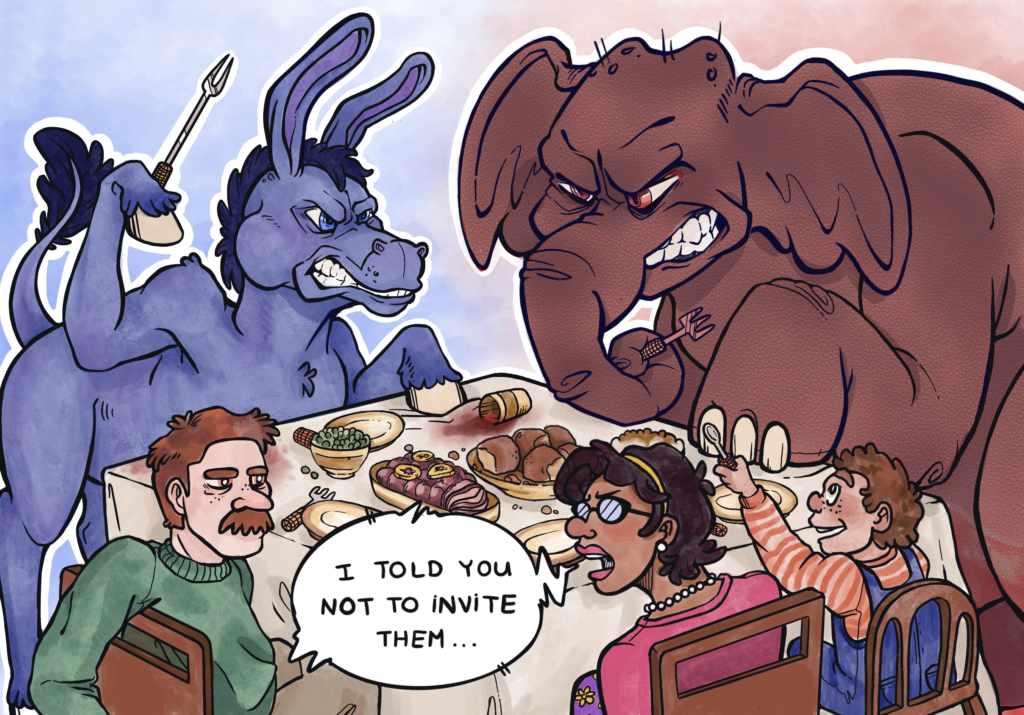By Audrey Yoshimura
Focus Editor

As families gather around the Thanksgiving table, a guest abruptly interrupts the peaceful environment with unsolicited political opinions. American politics have reached an unprecedented level of divisiveness, but the holidays should remain reserved for time to spend together. In order to fully appreciate and value Thanksgiving dinner, don’t engage in inflammatory topics. Politics do not belong at the dinner table.
In 2005, the Gallup Youth Survey polled teenagers and their families to estimate how many American teens politically align with their parents. Back then, the poll found about 71 percent of teens say their political opinions are the same as their parents.
Nearly a decade later, research suggests teenagers are less likely to identify with their parents’ political opinions and instead exercise more critical thinking. A more recent study in 2015 conducted by the American Sociological Association found polar results. More than half of children misperceive or reject their parents’ political party affiliations.
This shift inside the familial herd mentality is an admirable feat for teens as they break away and establish strong beliefs of their own. Yet, is this a good thing?
Yes and no. It’s an accomplishment to establish your own set of beliefs that don’t align with your family’s. However, no opinion is worth destroying relationships with them. This goes for parents, teens and relatives. A degree of respect and understanding must be established to encourage healthy debate and develop closer relationships. Regardless of your family’s political situation, spare the partisan talk during the holidays and prioritize time with relatives you rarely see.
I admit it is tempting to discuss the most recent news headlines. However, catching up with family and friends instead of instigating arguments makes gatherings more precious and meaningful to me. Realistically, it may be easier said than done to fully avoid these conversations, especially when there are other provokers at the dinner table. Here are a few tips to redirect conversations away from a full-blown debate:
- Agree to disagree. Simple in method, politely agreeing to disagree with a family member will demonstrate maturity to the differently aligned party members and will set you as a model of composure everyone should follow. This is a way to compromise, acknowledge and respect the other person’s opinions while staying steadfast in your beliefs.
- Don’t match the energy in the room. If you feel like the tension is growing in the room, don’t be tempted to raise your voice to their level.
- If it’s impossible to avoid political discussion, try finding common ground with a relative who is accepting of different beliefs.
Balancing politics with family is difficult. There is a sense of expected allegiance among kin, especially during a time where political tensions are at an all time high. There is nothing wrong with having views that don’t align with your family. It breaks my heart to hear about friends and relatives who break ties with others for this reason.
Political agendas thrive off of polarization, but don’t let your household or Thanksgiving dinner fall prey to this unfortunate reality. Leave the politics at the doorstep, and enjoy time together with loved ones.
